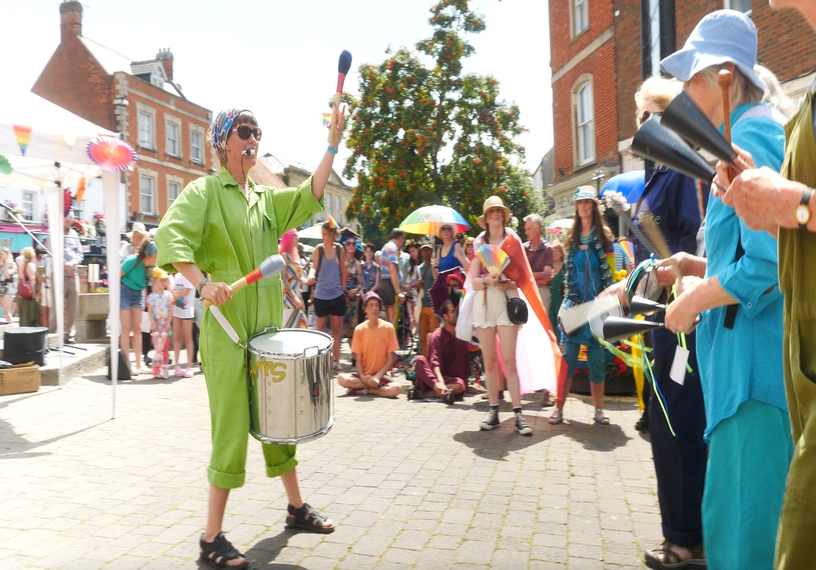Quakers in Southwest England pull together on climate crisis
Southwest England's Quaker community has drawn together to work to combat climate change, thanks to funds donated for local development work.

New links forged between Quakers in Cornwall, Devon and Somerset were made possible by generous grants from the Benefact Trust, Bader Philanthropies and WF Southall to support Quaker local development workers.
Local development workers support Quaker meetings to be inclusive, welcoming and all age, providing accompaniment, facilitation, project support and training.
Asked to advise Mid-Somerset Quakers about climate change work, local development worker Pip Harris facilitated conversations with people across the region, and put them in touch with one another.
Inspired by Cornish Quaker Meetings held outside during the G7 and COP27 – as well as near the office of local MP George Eustice, Secretary of State for Environment, Food and Rural Affairs Mid-Somerset Quakers have held vigils outside Wells Cathedral.
[QUOTE-START]
If you are the only person doing this work in your meeting, it is vital to meet others
- Pip Harris
[QUOTE-END]
Pip Harris supported setting up a West Country lecture, and Friends invited Quaker human ecologist and writer Alistair McIntosh to give a lecture on climate change. This was linked through networks of climate cafés, and West Somerset Quakers Earth Action Group.
Kevin Redpath of Street Quakers said: “Pip has been great with the networking. We now have monthly climate vigils in four centres, weaving in a lot of Friends [Quakers]."
Quakers in Britain were awarded £200,000 over three years by the Benefact Trust while Bader Philanthropies and WF Southall provided grants of £100,000 each over two years.
The Quaker programme proved an excellent fit for Benefact's Transformations grants, which offer funding for Christian organisations to make a step change in capacity, reach, impact and spiritual growth, enabling them to forge connections with more people and communities.
Pip Harris said: “In cities it is not so important because there might be enough people already in your meeting to work with. But for isolated more rural activists, if you are the only person doing this work in your meeting, it is vital to meet others."
She added: “It is helpful to break down the idea that 'activism' around the climate emergency is mainly to work with Just Stop Oil or Extinction Rebellion. That suits some people, but there are other powerful ways of taking action, such as lobbying your local MP or hosting a climate lecture or film festival."
Learn more here about the spiritual basis for Quaker climate action